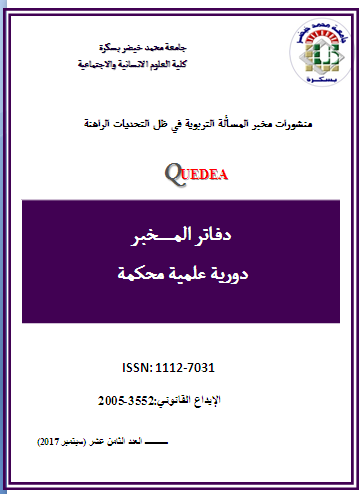عبد الرحمان بن خلدون والدعوات الدينية
Résumé
الملخص:
يعتبر عبد الرحمان بن خلدون من أوائل الذين تناولوا بالبحث العلاقة بين الدين والسياسة ضمن تحليل سوسيولوجي عميق أكد على العلاقة القوبة بين القبيلة والدولة ي بلدان المغرب الاسلامي.
انطلق في دراسته من مفهوم العصبية، مع إشارة دقيقة للدعوة الدينية، من خلال التأكيد على الدور المحوري للعصبية كآصرة اجتماعية ذات والدعوة الدينية بأبعادها التربوية والاصلاحية والايديولوجية والتي تنجح في تأليف قلوب القبائل وتخفيف الصراع بينها، ودفعها للتحرك السياسي الذي يسعى لتأسيس الدول وتعظيم الملك.
وقد بّين ابن خلدون في مقدمته الشهيرة متى تنجح الدعوة الدينية في إنجاز أهداف التعاضد والالتحام، ومتى تفشل في الوصول إلى مبتغاها، وقد ربط ذلك أساسا بالعصبية القبلية كشرط لإنجاز الدور الاجتماعي والسياسي للدين، وهذه الورقة محاولة للدفع بالبحث في هذا الاتجاه.
Résumé :
Abderrahmane Ibn Khaldun is one of the first to study the relationship between religion and the state in a deep sociological analysis based on the relationship between the tribe and the state in the Maghreb countries.
He developed his analysis from the concept of "assabia", emphasizing his decisive relationship with the religious call ((Daawa).
He demonstrated in his famous work (Muquadima) how the "assabia" as a "tribal" social bond is consolidated thanks to the religious call, given its cultural and educational dimensions; and succeeded in mitigating the conflicts between the tribes, pushing them to compete and establish the states.
In addition, He emphasized when the religious call succeeds and when it does not reach its goal. He connected the concept of tribal "assabia" in a comprehensive analysis of the social and political role of religion. This document tries to push the search in this direction.



